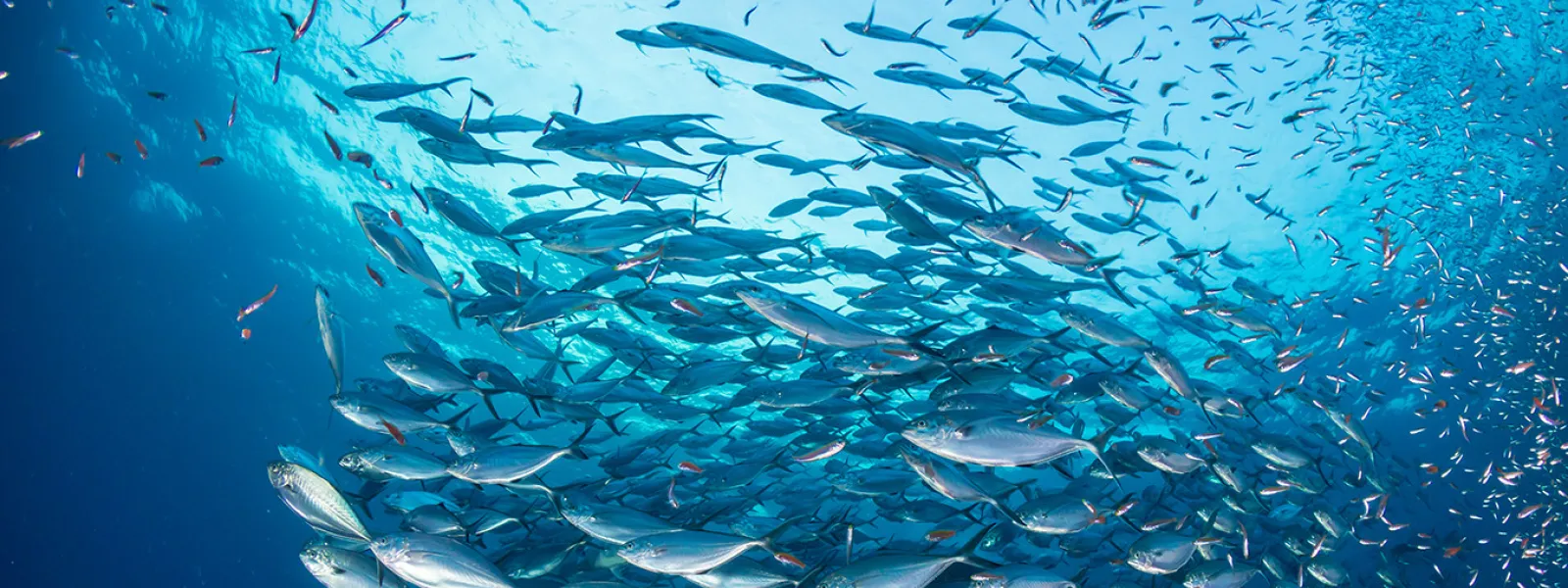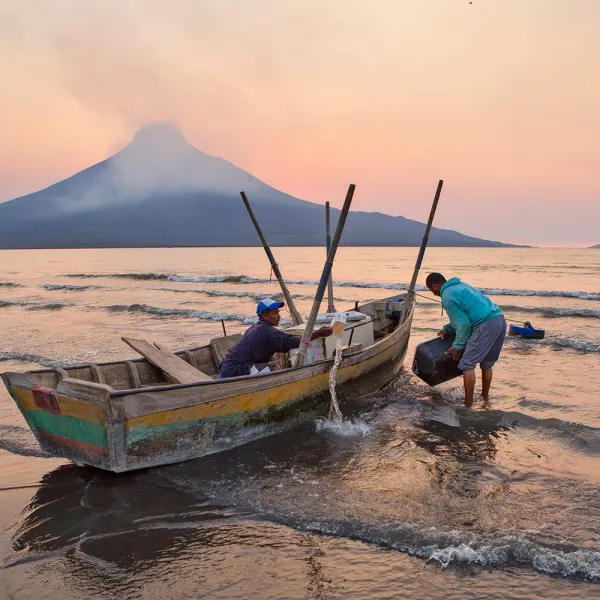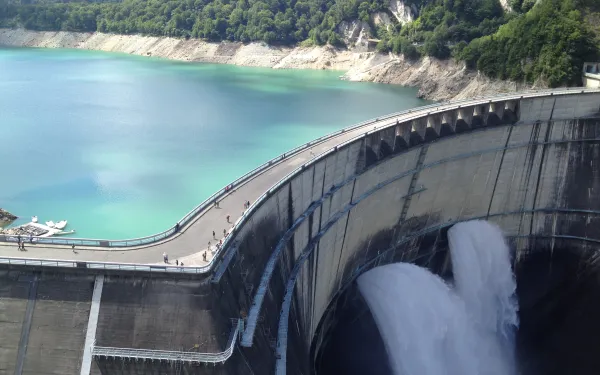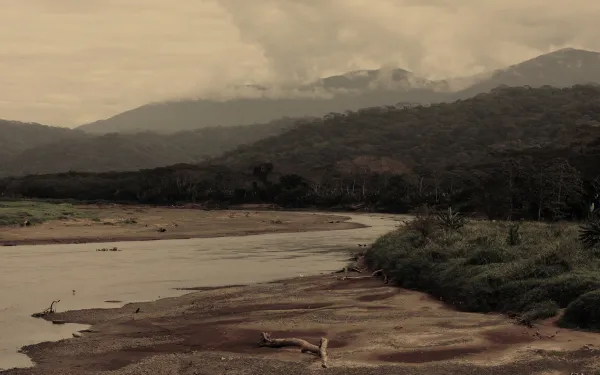
Project
ShutterstockTowards an end to subsidies that promote overfishing
Overfishing is one of the main problems for the health of our ocean. And the provision of negative subsidies to the fishing sector is one of the fundamental causes of overfishing.
Fishing subsidies are financial contributions, direct or indirect, that public entities grant to the industry.
Depending on their impacts, they can be beneficial when they promote the growth of fish stocks through conservation and fishery resource management tools. And they are considered negative or detrimental when they promote overfishing with support for, for example, increasing the catch capacity of a fishing fleet.
It is estimated that every year, governments spend approximately 22 billion dollars in negative subsidies to compensate costs for fuel, fishing gear and vessel improvements, among others.
Recent data show that, as a result of this support, 63% of fish stocks worldwide must be rebuilt and 34% are fished at "biologically unsustainable" levels.
Although negotiations on fisheries subsidies, within the framework of the World Trade Organization, officially began in 2001, it was not until the 2017 WTO Ministerial Conference that countries committed to taking action to reach an agreement.
This finally happened in June 2022, when member countries of the World Trade Organization reached, after more than two decades, a binding agreement to curb some harmful fisheries subsidies. It represents a fundamental step toward achieving the effective management of our fisheries resources, as well as toward ensuring global food security and the livelihoods of coastal communities.
The agreement reached at the 12th WTO Ministerial Conference provides for the creation of a global framework to reduce subsidies for illegal, unreported and unregulated fishing; subsidies for fishing overexploited stocks; and subsidies for vessels fishing on the unregulated high seas. It also includes measures aimed at greater transparency and accountability in the way governments support their fisheries sector.
The countries agreed to continue negotiating rules to curb other harmful subsidies, such as those that promote fishing in other countries' waters, overfishing and the overcapacity of a fleet to catch more fish than is sustainable.
If we want to have abundant and healthy fishery resources, it is time to change the way we have conceived fishing until now. We must focus our efforts on creating models of fishery use that allow for long-term conservation.
Partners:


Letter to Green Climate Fund Board and Advisors: Concern regarding the use of GCF resources to support large hydropower
We write to express our concern regarding the use of GCF resources to support large hydropower in general, and in particular the following proposals in the GCF pipeline: Qairokkum Hydropower Rehabilitation, Tajikistan Upper Trishuli-1, Nepal Tina River Hydro Project, Solomon Islands Large hydropower is a non-innovative, last-century technology with dubious climate mitigation benefits and a long track record of exceedingly high financial, environmental, and social costs. Supporting such proposals would not be consistent with the Fund’s goal, to promote a paradigm shift toward lowemission, climate resilient development, in the context of sustainable development. Further, large hydropower projects would not meet the GCF’s selection criteria related to impact, paradigm shift potential, sustainable development, and efficiency and effectiveness. The reasons why the GCF should not support large hydropower are described in the annex, and briefly summarized here: Large dams are vulnerable to climate change: more frequent droughts make them inefficient and increased rainfall reduces their lifespan. Large dams exacerbate climate change: considerable amounts of greenhouse gasses, notably methane (30 times more potent than CO2), are emitted from reservoirs; and their construction damages carbon sinks, including forests and rivers. Large dams harm biodiversity, which in turn impairs communities’ capacity to adapt to a changing climate. Large dams can negatively affect local communities by impoverishing them, breaking social networks, and negatively affecting livelihoods and cultures. Large dams can become dangerous: climate change-related extreme weather events and earthquakes can cause dams to fail, jeopardizing lives and property downstream. Large dams are not economical and are ill suited to address urgent energy needs: recent studies clearly demonstrate that large dams typically suffer significant cost and time overruns. Better energy options are widely available and the GCF should play a fundamental role in promoting them.
Read more
Letter to Green Climate Fund Board and Advisors: Concern regarding the use of GCF resources to support large hydropower
We write to express our concern regarding the use of GCF resources to support large hydropower in general, and in particular the following proposals in the GCF pipeline: Qairokkum Hydropower Rehabilitation, Tajikistan Upper Trishuli-1, Nepal Tina River Hydro Project, Solomon Islands Large hydropower is a non-innovative, last-century technology with dubious climate mitigation benefits and a long track record of exceedingly high financial, environmental, and social costs. Supporting such proposals would not be consistent with the Fund’s goal, to promote a paradigm shift toward lowemission, climate resilient development, in the context of sustainable development. Further, large hydropower projects would not meet the GCF’s selection criteria related to impact, paradigm shift potential, sustainable development, and efficiency and effectiveness. The reasons why the GCF should not support large hydropower are described in the annex, and briefly summarized here: Large dams are vulnerable to climate change: more frequent droughts make them inefficient and increased rainfall reduces their lifespan. Large dams exacerbate climate change: considerable amounts of greenhouse gasses, notably methane (30 times more potent than CO2), are emitted from reservoirs; and their construction damages carbon sinks, including forests and rivers. Large dams harm biodiversity, which in turn impairs communities’ capacity to adapt to a changing climate. Large dams can negatively affect local communities by impoverishing them, breaking social networks, and negatively affecting livelihoods and cultures. Large dams can become dangerous: climate change-related extreme weather events and earthquakes can cause dams to fail, jeopardizing lives and property downstream. Large dams are not economical and are ill suited to address urgent energy needs: recent studies clearly demonstrate that large dams typically suffer significant cost and time overruns. Better energy options are widely available and the GCF should play a fundamental role in promoting them.
Read more
Tárcoles: The most contaminated river in Central America
The sun rises slowly over the Rio Grande de Tárcoles. Guacamayas rest on treetops, and crocodiles laze upon the shore. Hundreds of tourists stop to photograph this beautiful moment when, suddenly, a hunk of garbage floats by. This is life on the Tárcoles, the most polluted river not just in Costa Rica but also in all of Central America. While the country has made great strides in moving beyond fossil fuels for power generation, there is still much to be done in terms of waste management. The source of pollution There are two main reasons for the excessive contamination of the large river: increasing urbanization and government bureaucracy. Within the river’s enormous span—which covers 4.2 percent of the Costa Rican territory—flows all the dirty water of the small nation’s Greater Metropolitan Area. In 2012, the State of the Nation report revealed that 96 percent of the country’s wastewater was untreated before entering the river. The Tárcoles suffers the consequences of this deficiency. The river is used as a city sewer, receiving the equivalent of 100 Olympic swimming pools of untreated water, according to the Institute of Aqueducts and Sewers. Its waters have been victim to antiquated laws that have for years favored economic activity above the river’s health. Despite an established fine for discharging wastewater and pollutants into the river, enforcement is not respected. As a result, the number of illegal spills of dirty water, tech waste, and garbage into the Tárcoles remains unchanged. Thanks to all of this, the National University’s environmental analysis laboratory estimated that if more effective measures were not adopted by the year 2040, the river’s recovery would be impossible. The river has been saturated with pollution, reaching the critical situation we find it in today. Environmental wealth at risk Despite the heavy pollution, the biological wealth at the mouth of the Tárcoles River is extraordinary. In its waters lives the largest American crocodile population in the country and around 50 species of birds. The river feeds the Guacalillo mangroves, home to a huge variety of animals, and four of the five species of mangrove in Costa Rica. This rich ecosystem also contributes to fishing and tourism for the subsistence of local communities, who pride themselves on its natural beauty. What’s been done and what’s left to do Efforts have been made to mitigate the impact of pollution on the river and to rescue its great biodiversity. The Los Tajos water treatment plant was designed to clean 20 percent of the waters that reach the Tárcoles. Isolated citizens’ cleaning campaigns have also made an impressive impact. In 2007, a cleanup of the river removed approximately 1,000 tires from its waters. This spurred the government to issue a decree favoring local communities, with the intention of guaranteeing their right to a healthy environment. The decree recognizes the biological importance of the river and the deterioration it has suffered. It created the Comprehensive Management Commission for the Rio Grande de Tárcoles Basin to plan sustainable ways to protect the river. These responses are steps in the right direction. However, more significant actions are needed to ensure the full recovery of the Tárcoles, before the damage becomes irreparable. The Commission has thus far been unable to mitigate pollution significantly. It needs better organization and more resources. The Commission should be involving local communities and carrying out massive cleanups in the river basin. The Institute of Aqueducts and Sewers must act efficiently to treat wastewater properly, prevent illegal spills, clean the river to restore the health of this sick giant, and control all water entering the river. The challenge is great, but the natural beauty of the river basin makes it a worthwhile effort.
Read more